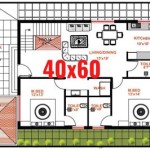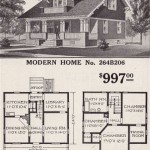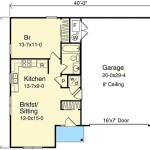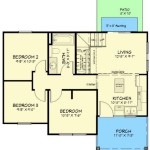Floor Plan With Dimensions In Feet: A Comprehensive Guide
When designing or renovating a home, a floor plan is an essential tool that provides a detailed layout of the space. It helps visualize the arrangement of rooms, walls, windows, and doors, ensuring that the design meets both functional and aesthetic requirements.
Floor plans typically include dimensions in feet, which are crucial for accurate planning and construction. Dimensions allow you to determine the size and shape of each room, plan furniture placement, and calculate materials needed for construction or remodeling.
Why Floor Plan Dimensions Matter
Accurate floor plan dimensions are essential for several reasons:
- Planning Furniture Layout: Dimensions help you determine if furniture will fit comfortably in each room, ensuring a functional and aesthetically pleasing arrangement.
- Accurate Costing: Dimensions are necessary for calculating the amount of materials needed for construction or remodeling, such as flooring, drywall, and paint, resulting in accurate cost estimates.
- Building Code Compliance: Floor plan dimensions must adhere to local building codes, which specify minimum room sizes, circulation spaces, and clearances.
- Renovation Planning: Dimensions aid in planning renovations by allowing you to visualize the impact of changes on the existing layout and to determine the feasibility of alterations.
Types of Floor Plans With Dimensions
There are different types of floor plans that include dimensions:
- Blueprint Floor Plans: Detailed technical drawings used in construction, showing dimensions in feet or inches.
- Architectural Floor Plans: Used in the design process, providing a scaled representation of the home's layout, including dimensions.
- As-Built Floor Plans: Created after construction, showing the actual dimensions and any deviations from the original design.
- 3D Floor Plans: Immersive renderings that allow you to visualize the home's layout in three dimensions, including accurate dimensions.
Interpreting Floor Plan Dimensions
When reading a floor plan, dimensions are typically indicated in the following format:
- Width x Length: Example: 12' x 15'
- Width x Length x Ceiling Height: Example: 12' x 15' x 8'
It's important to note that dimensions may vary between different types of floor plans and should be carefully reviewed for accuracy.
Floor Plan Software With Dimensioning Tools
Several floor plan software applications allow you to create and edit floor plans with precise dimensions. These tools offer features such as:
- Automatic Dimensioning: Software automatically generates dimensions based on the drawn walls.
- Custom Dimensions: Allows you to manually add or modify dimensions as needed.
- Dimension Editing: Provides tools to adjust dimension placement, font, and size.
- Scale Adjustment: Allows you to scale the floor plan to the desired size while maintaining accurate dimensions.
Conclusion
Including dimensions in floor plans is essential for ensuring accuracy, efficient planning, and compliance with building codes. Floor plan software with dimensioning tools can simplify the process and ensure professional-quality floor plans. By carefully considering dimensions, you can create functional and aesthetically pleasing home designs that meet your specific requirements.

12 Examples Of Floor Plans With Dimensions

12 Examples Of Floor Plans With Dimensions

Floor Plans With Dimensions Including Examples Cedreo

How To Properly Read Floor Plans And What Details Look For
Overview Measurements On Floor Plans Roomsketcher Help Center

Floor Plans With Dimensions Including Examples Cedreo

Add Measurements

Can I Add More Square Feet To A Custom Home Plan

Floor Plan With Dimensions Plans Are Useful To Help Design Furniture Layout Wiring S Bungalow House

12 Examples Of Floor Plans With Dimensions








